Toronto's Rob Ford to face John Tory and Olivia Chow
- Published
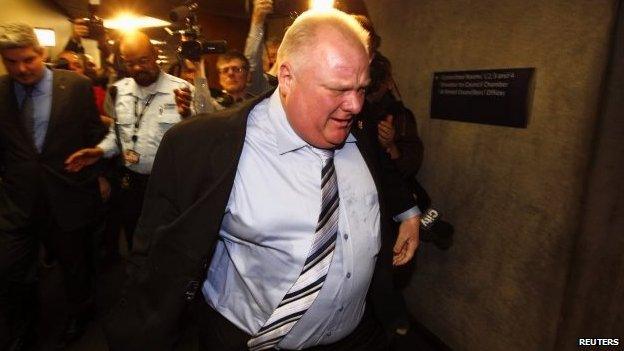
Just weeks into the race, Ford maintains what appears to be a solid base of support
After a year of drunken antics, admissions of drug use, and crippling disputes with the city council, polls suggest Toronto Mayor Rob Ford could still win re-election in October. How do his challengers make their pitch to the city's typically staid voters?
As regular as the frigid spring rain falling on Canada's largest city earlier this month, Mr Ford stood before a pack of baying reporters and waved off the latest allegations of public misbehaviour.
The mayor had been denied entry to a luxury box at a Toronto Maple Leafs hockey game at the weekend, and the reporters pressed him whether he was intoxicated.
"No, I wasn't. Not at all," the mayor said, declining to answer whether he was still using drugs at all.
It was the latest episode in what his detractors describe as the circus sideshow at city hall in this sprawling, diverse city of 2.6 million people.
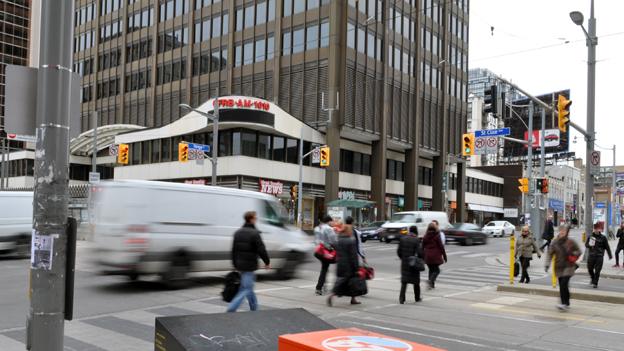
Toronto is one of the most diverse cities in the world - with some of the worst traffic in North America
Over the past year, Toronto and the world have seen Mr Ford turn the air blue in drunken rants, admit to using crack cocaine and to buying illegal drugs while mayor, and fend off allegations he associates with criminals. The city council has stripped him of most of his power and most of his staff have quit, rendering him effectively mayor in name only.
In October, the voters will have their say.
The race has just started but despite it all, early polling shows Mr Ford in strong contention against Olivia Chow, a left-wing member of the New Democratic Party (NDP) and John Tory, a centre-right Conservative, with about 30% of the vote.
Analysts say Mr Ford has a loyal base of support in the inner suburbs, which were absorbed into the municipality of Toronto in 1998. Younger, less-educated, and poorer Torontonians in particular back him, according to a recent survey of 634 voters by Forum Research, external.
"They're people who feel that they're talked down to by politicians," said Nelson Wiseman, a political scientist at the University of Toronto. "They can identify with Ford because there's little pretence about the guy."
Forum Research president Lorne Bozinoff said Mr Ford stacked up accomplishments before he became bogged down in disputes with the city council and later the drugs and alcohol woes. In particular, he privatised rubbish collection in a large swathe of the city and repealed a despised vehicle tax.
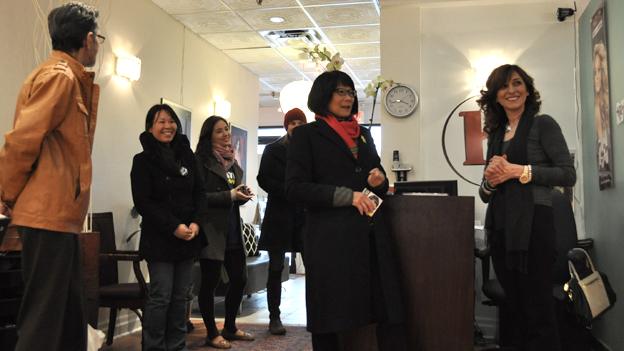
Chow (centre) campaigning at an Iranian-owned hair salon - she was a long time city councillor and MP
"If the issue's about his accomplishments, he does well," Mr Bozinoff said. "That's what's been keeping him afloat."
Neither of Mr Ford's two major challengers are shy about alluding to his behaviour.
Mr Tory is a broadcaster and former CEO of Rogers Media who has also served as commissioner of the Canadian Football League, member of the provincial parliament, and leader of the Ontario Progressive Conservatives. He has released a "Code of Conduct", in which he vows to "respect and defend our laws, not break them", and to "show up for work each day".
"We need change in the city," he told the BBC in an interview over a half-pint of beer in a crowded bar before the start of a Toronto Blue Jays baseball game.
"If we want to have a liveable, affordable, functional city, then we need a change in leadership, because we're just not getting things done under the present leadership."
He said the "sideshow" made it difficult for the municipal government to focus on easing congestion on the city's notoriously jammed roads, to keep taxes low, and to slash spending.
"The city needs to have somebody who will mind the pennies but at the same time will be able to work with others, because our system requires you to do that to get results," he said.
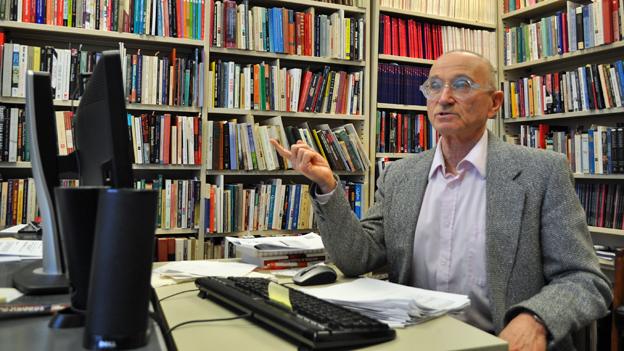
Wiseman says Ford will be hard-pressed to expand his support beyond his loyal base
Ms Chow, a long-time Toronto councillor and NDP MP, immigrated to Canada from Hong Kong at age 13. Her late husband, Jack Layton, led the NDP from 2003 until his death in 2011. She says her story will appeal to Toronto's extraordinarily diverse population - 46% of Toronto metropolitan area residents were foreign-born in 2011, according to Statistics Canada, external.
"I want to bring pride back to the city, respect and a sense of hope, because we have a great city," Ms Chow told the BBC in an interview in her campaign office in Toronto's Deer Park neighbourhood.
"Toronto is really diverse, we are strong. We have people coming from all over the world enjoying the city and living here quite harmoniously.
"Under Mr Ford, our city hasn't really moved forward. We're stuck. We're mired in scandal. I've seen other mayors - Vancouver, Calgary - out there selling their cities, talking about economic development, encouraging investment. We're not doing that, not only because of the scandals, but because Mr Ford's performance as a mayor is a failure."
Mr Ford's campaign declined repeated requests for an interview with the mayor, with his brother and campaign manager Councillor Doug Ford, or any representative of the campaign.
Meanwhile, on the streets of Toronto, the incumbent seemed to offer something for everyone to fault, even among people who said they supported his politics.
"I don't think he's doing a very good job," said a woman who gave her name as Maureen. "As for his personal record, that's despicable, but if he was a good mayor, it shouldn't have any bearing on who we elect."
Christina McLain, an actress and former teacher who described her politics as centrist, said Mr Ford was "very likeable in a sort of roguish way".
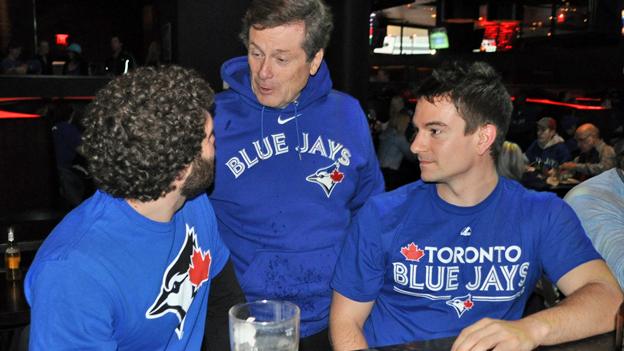
Tory chatted with voters at a bar before the start of a Blue Jays baseball game
"But I don't think he's going to be able to guide the city in the next few years. He's an addict. He's obviously mixed up with criminals."
At the University of Toronto, Prof Wiseman said he believed the polls overstated Mr Ford's support.
"Although he looks like he's running strong now, as more time goes by in this race I can't really see him picking up support," he said.
So who, after the past year, will vote for him?
"He got elected on what Bob Dylan called an idiot wind. In every culture you're going to have an element of the idiot vote, and he's the candidate of the idiot party."
Follow Daniel Nasaw on Twitter at @danielnasaw, external